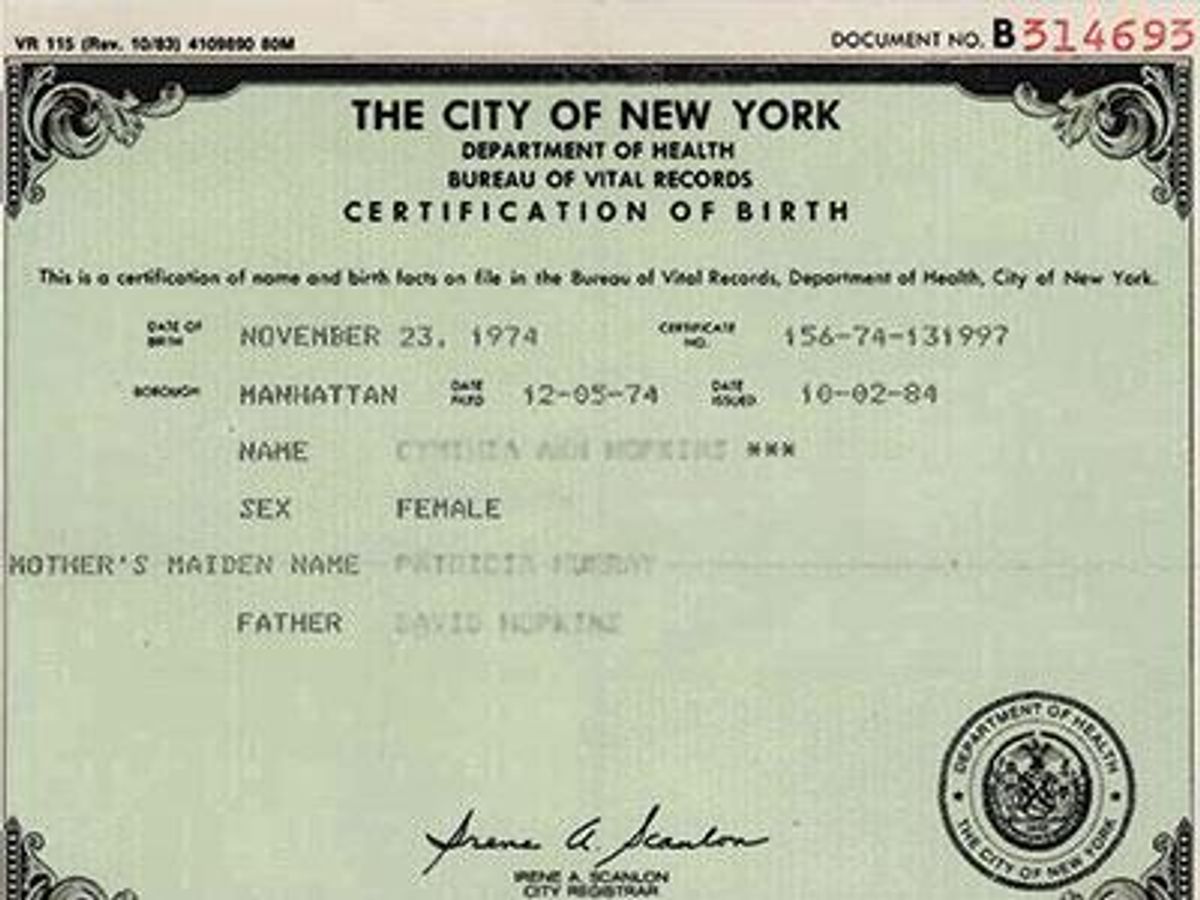Transgender
Burden of Proof
Burden of Proof

The government ought to recognize that "our gender assignment doesn't depend on our genitals," says activist Kate Bornstein.
Stephanie Fairyington
March 05 2015 8:00 AM EST
November 17 2015 5:28 AM EST
By continuing to use our site, you agree to our Private Policy and Terms of Use.
Burden of Proof

According to a national survey, 40% of transgender people experience discrimination when official forms of identification aren't in sync with their visible gender. But changing government-issued IDs (driver's licenses, Social Security cards, passports) has historically been a challenge. Since 1971, to alter their sex designation on a birth certificate in New York City, trans people have had to demonstrate that they'd undergone gender confirmation surgery and hormone therapy, a burden of proof inaccessible to people without health insurance or substantial financial means -- and simply unnecessary for others. To remove these antiquated requirements, gay New York City councilman Corey Johnson, a Democrat from Manhattan, introduced legislation in October to eliminate them. On December 8, when the bill was passed (39 votes to four, with three abstentions), the trans community was abuzz with victory.
"The passage of this bill is astounding," said Kate Bornstein, the trans activist and author. "It says to the world that our gender assignment doesn't depend on our genitals." Shannon Price Minter, who spearheads the legal division of the National Center for Lesbian Rights in San Francisco, was also enthusiastic: "The new law is a huge step forward and will benefit countless transgender New Yorkers who have been prevented from obtaining accurate birth certificates under an extremely outdated and burdensome law.
Johnson said: "This was an injustice that had been allowed to exist for too long," adding that the bill is "going to make a significant difference."
The measure still requires that any of a number of licensed professionals -- psychologists, clinical social workers, physician's assistants, nurse practitioners, et cetera -- vouch for the discontinuity people feel between their assigned sex and gender identity. Minter, who is a transgender man, said, "A more progressive policy would be one that recognizes that transgender people can self-determine and should not require external validation before their identities are respected."
Johnson said it's his personal belief that "self-attestation is the right course to take, but in working with advocates, the administration, the Department of Health and Mental Hygiene, this was the best way to accomplish passage of this bill." He also explained that the large pool of experts who are eligible to authenticate someone's avowed gender was a strategic decision to ensure access without wealth or health insurance. "You can go to a legal services organization, such as the Transgender Legal Defense & Education Fund or the Sylvia Rivera Law Project in New York City," he said. "They have people on staff who should be able to help you if you're uninsured."
Still, as Bornstein said, "Without the new law's dependence on outies and innies, there's no real reason to have an option of only two genders, right?"
Johnson, when asked whether he'd support a future bill that would expand the number of gender options on birth certificates, said: "Some people do not identify as male or female. They should be able to self-identify in the way that works for them."